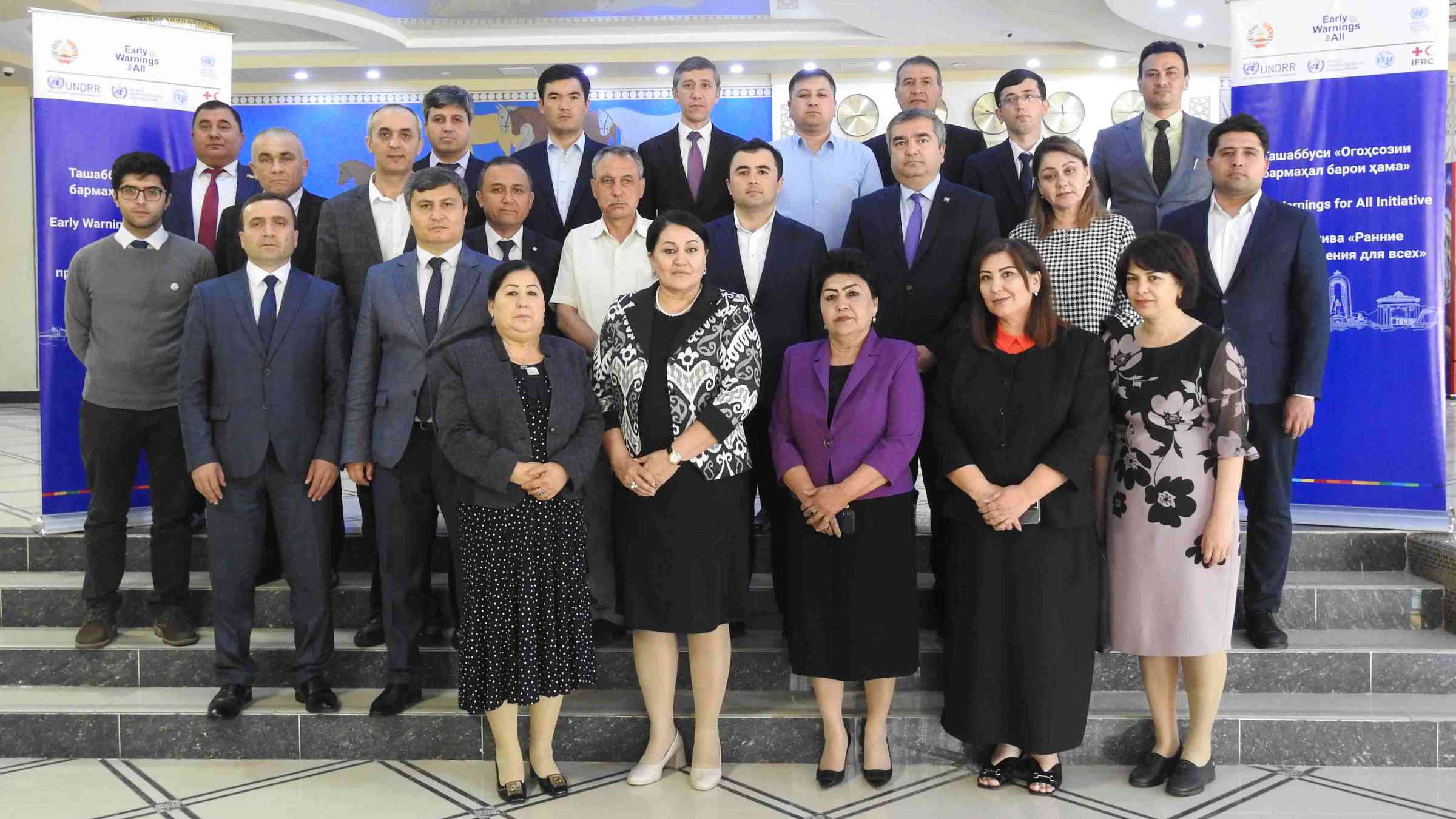Tajikistan advances Early Warnings for All initiative through local level workshops

Participants at the Early Warnings for All local-level workshop in Khujand
Tajikistan is taking significant strides towards bolstering its resilience against natural hazards and climate change impacts through a series of local level workshops under the Early Warnings for All (EW4ALL) initiative.
Tajikistan emerged as one of the first thirty countries to roll out the Secretary General's EW4ALL initiative, which was launched globally at COP27 in 2022, and nationally in Tajikistan in August 2023. The government has since engaged proactively through concerted efforts on the initiative's implementation, including through the appointment of a National Focal Point, the Deputy Prime Minister of Tajikistan, Mr. Sulaimon Ziyozoda to lead the process, and the identification of responsible agencies for each pillar of the initiative.
The local workshops, held on April 19 in Khujand, April 24 in Khorog, and April 30 in Bokhtar, represent a crucial step towards realizing the EW4ALL objectives, fostering inclusivity, and empowering communities to take proactive measures in the face of imminent threats. Bringing together key stakeholders, including local and national level government representatives, UN agencies and international partners, the workshops underscored the urgency of bridging the gap in early warning coverage in regions of the country that are vulnerable to avalanches, earthquakes, floods, mudflows, and landslides.
During the third local-level workshop in Bokhtar, Parvathy Ramaswami, the UN Resident Coordinator in Tajikistan said,
"These consultations truly embrace localization, engaging with diverse stakeholders at sub-national level, hear their voices and suggestions towards mitigating the adverse consequences of climate change and other risks, on adapting actions that will enable them to be better prepared, and respond appropriately. They play an active part in strengthening and sustaining the early warning systems in the country."
Moving forward, the insights gathered from these workshops will inform the finalization and approval of a comprehensive Roadmap at a national event led by the Deputy Prime Minister. This collaborative approach, involving government agencies, development partners, civil society, and the private sector, reflects Tajikistan's commitment to building resilient communities and contributing to global efforts in achieving the Sustainable Development Goals and addressing climate change challenges.
The Early Warnings for All Initiative calls for a global effort to ensure that such systems protect everyone on Earth by 2027. Early Warning Systems, supported by preparedness and early action, are a proven, effective, and feasible disaster risk reduction and climate adaptation measure, that save lives and provide a tenfold return on investment. Yet, major gaps in early warning systems remain globally, especially when it comes to translating early warnings into risk-informed early action.
Lead agencies of the four pillars of the Early Warnings for All Initiative:
- United Nations Office for Disaster Risk Reduction (UNDRR)
- World Meteorological Organization (WMO)
- International Telecommunication Union (ITU)
- International Federation of Red Cross and Red Crescent Societies (IFRC)